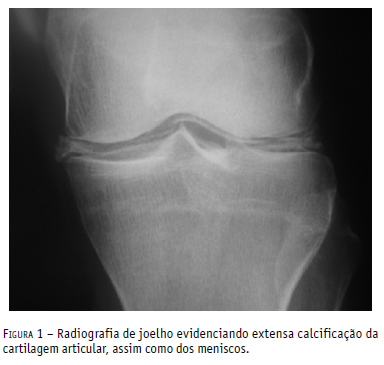Familial articular chondrocalcinosis is a disorder characterized by deposition of calcium pyrophosphate dihydrate crystal in synovial fluid and articular cartilage that can cause joint pain and arthritis. We have identified three members of the same family with chondrocalcinosis. The clinical features of the disease were intermittent episodes of arthritis in two patients and polyarthritis resembling rheumatoid arthritis in one member. The radiological evaluation showed calcification in several joints, particularly in cartilages of the knees. Therapy with colchicine was enough to prevent arthritic crisis in two patients and continous NSAID use was necessary to control symptoms in the last one. Familial chondrocalcinosis seems to be rare in Brazil, but we do not exclude the possibility that this figure is underestimated and suggest that in cases of sporadic chondrocalcinosis other members of the family should be fully investigated.
familial chondrocalcinosis; arthritis; pseudogout; calcium pyrophosphate dihydrate crystal deposition disease

